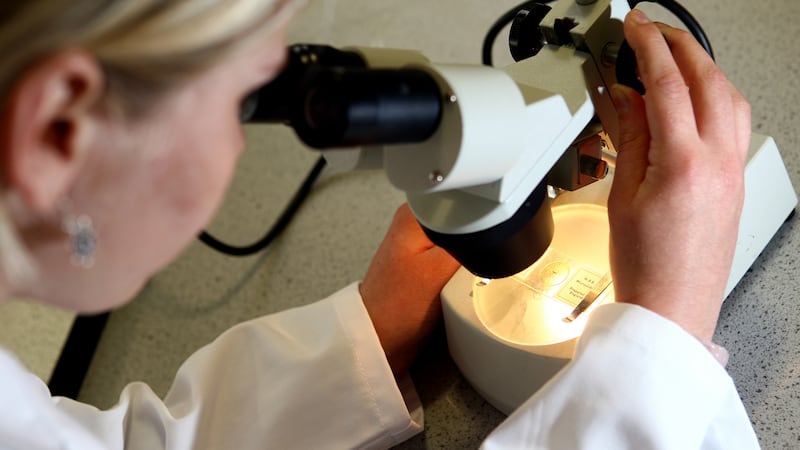I was struck by Jarlath Kearney’s article (May 19) and the proactive measures he stressed that highlight the importance of rebuilding Irish and British relationships to bring our island closer together. Mr Kearney rightly stated that: “The Ireland and UK governments need the commitment – and also, importantly, the political encouragement – to build an enhanced bilateral framework that will create stability and structure for the next decade.”
The most effective tool for such enhanced political cooperation is undoubtedly the Good Friday Agreement and the strand three institutions contained therein.
Much has been said in recent weeks on the North-South Ministerial Council and its importance in bringing together ministers from Northern Ireland and Ireland to work together – cooperation which is of growing importance as Northern Ireland looks towards the selection of a new first minister. That four sectoral meetings have been cancelled at short notice is hugely concerning. I struggle to see how any farmer, anywhere on this small island, benefits from these meetings not going ahead.
The beauty of the Good Friday Agreement is that the people of Northern Ireland are at its core; every institution and aspiration of the agreement was done so to benefit the people of Northern Ireland and to allow future generations to live in peace. Some political leaders seem to have lost sight of this. The meetings of the North-South Ministerial Council are so vitally important in working out the practical challenges that impact everyone. They cannot become a political plaything or somehow become seen as optional.
East-west relations are just as crucial. As Mr Kearney pointed out in his article, the British-Irish Intergovernmental Conference will meet next month for the first time in two years and I agree with him in the importance of all parties agreeing to a set calendar of meetings of the Conference.
The Good Friday Agreement created the conference to maintain East-West relations and given the loss of contact between Ireland and the UK on a European level, the conference is now more important than ever.
With tensions on the rise, now is not the time for political games, but for committed and proactive work towards reconciliation.
No one can deny that there are issues in Northern Ireland
regarding the Protocol but these cannot be addressed until engagement resumes.
In addition, we must dial down the rhetoric and be far more practical on a north-south and equally an east-west basis. Political leaders are examples in their communities – the tools to bring about stability and progress are in the Good Friday Agreement, but they cannot work in isolation.
NEALE RICHMOND TD
Dublin Rathdown
Pavement cafés should be fully compliant with legislation
As our towns and cities reopen after the Covid-19 restrictions of the past 14 months, we understand that there is an appetite for businesses to get back to ‘normal’, showcase their products and attract customers back to eat and drink at their premises.
Indeed, RNIB and Guide Dogs support and welcome back our ‘café culture’ as many people living with a sight loss enjoy such outdoor hospitality – however, it is important to highlight the need for it to be undertaken in a safe and responsible manner, which respects the rights of blind and partially sighted customers and pedestrians.
RNIB Northern Ireland and Guide Dogs in Northern Ireland have therefore written to all 11 local councils and are also asking businesses to make sure that chairs and tables are kept within permitted boundaries so there is sufficient space for blind and partially sighted people to safely walk around.
As you are no doubt aware, the pandemic has created a number of extra barriers for blind and partially sighted people, including difficulty with social distancing, new street layouts, and pop-up cycle lanes to name a few.
Pavement cafés have the potential to further add challenges, as well as the possible injury, if not administered and planned with care.
We are therefore asking for ‘pavement premises’ not to be placed in areas where people congregate (such as bus stops or pedestrian crossings), to adhere to the two metres of pavement distance, have clearly defined and demarcated screened off areas as well as high colour contrast furniture. These small adaptions will ensure that street furniture is visible and doesn’t stray outside of these areas, therefore keeping everyone safe.
There is a role for a vibrant café culture scene in our towns and cities, but it is equally important that the rights of the 56,400 blind and partially sighted people in Northern Ireland are taken into account. What we ask is that local councils work with us to ensure pavement cafés and premises are fully compliant in line with pavement café legislation and guidelines.
PAULA BEATTIE
RNIB Northern Ireland;
ANDREW MURDOCK
Guide Dogs NI
Insulting response
Like many of your readers I’m finding the response of western countries to the ongoing mass murder and brutalisation of the native Palestinian population on a daily basis very hard to stomach.
In recent days we’ve been watching reruns of the British army brutalising and murdering Belfast Catholics in a scenario uncannily like the Israeli attacks on Palestinians. The response of western leaders has bordered on insult as they appeal for restraint on both sides and offering at the same time total support to Israel to defend itself.
What we are seeing is one of the most high tech, nuclear armies in the world bombing the impoverished, starving people of Gaza.
The disproportion is staggering – the Palestinians are responding to these murderous air attacks with rockets that are barely more effective than squibs in comparison to the powerful bombs demolishing 20-storey blocks of flats.
Who will stand up for the Palestinians?
JOHN VALLELY
Armagh City
Young Blondie is playing a blinder
Too many political commentators leave a lot to be desired, particularly on this side of the Irish Sea, who hold with a childish detestation of Boris Johnson.
They suggest now, in their English-hating way, that Mr Johnson’s current outstanding success is somehow ‘accidental’ and is about to be undone by the ‘truth’ from former adviser Dominic Cummings, is fanciful.
Knowledgeable people will seriously make political analysis on the state of play in British politics with detached fairness and are slow to read the hopeful meanderings of the Tory-bashers in Eire, led primarily by small fry newspaper columnists.
How anyone – no matter the eventual outcome of Boris’s long-term political career in Britain – has not been able to accept that to date young Blondie has been playing a blinder, must themselves be blinded by their own personal angst of disatisfaction. The permanent bleating against the existing governmental situation in the UK is nonsensical, and political criticism is best landed by them on the doorsteps of their own opposition champions, be they at home or abroad.
ROBERT SULLIVAN
Bantry, Co Cork







